Earth Planets Universe
The Graduate School of Earth Planets Universe aims to train professionals in the fields of geosciences and astrophysics, astroparticle and cosmology.
The Graduate School offers several Masters courses and PhD progammes in fundamental and applied physics, risks and environment, and planetary sciences. It brings together 100 researchers and over 400 students from the Institut de Physique du Globe de Paris and the Astroparticle and Cosmology laboratory, all part of the UniversEarth initiative.
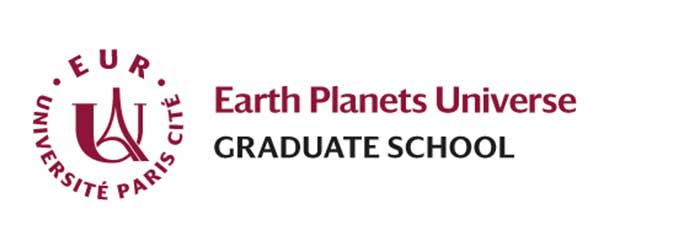
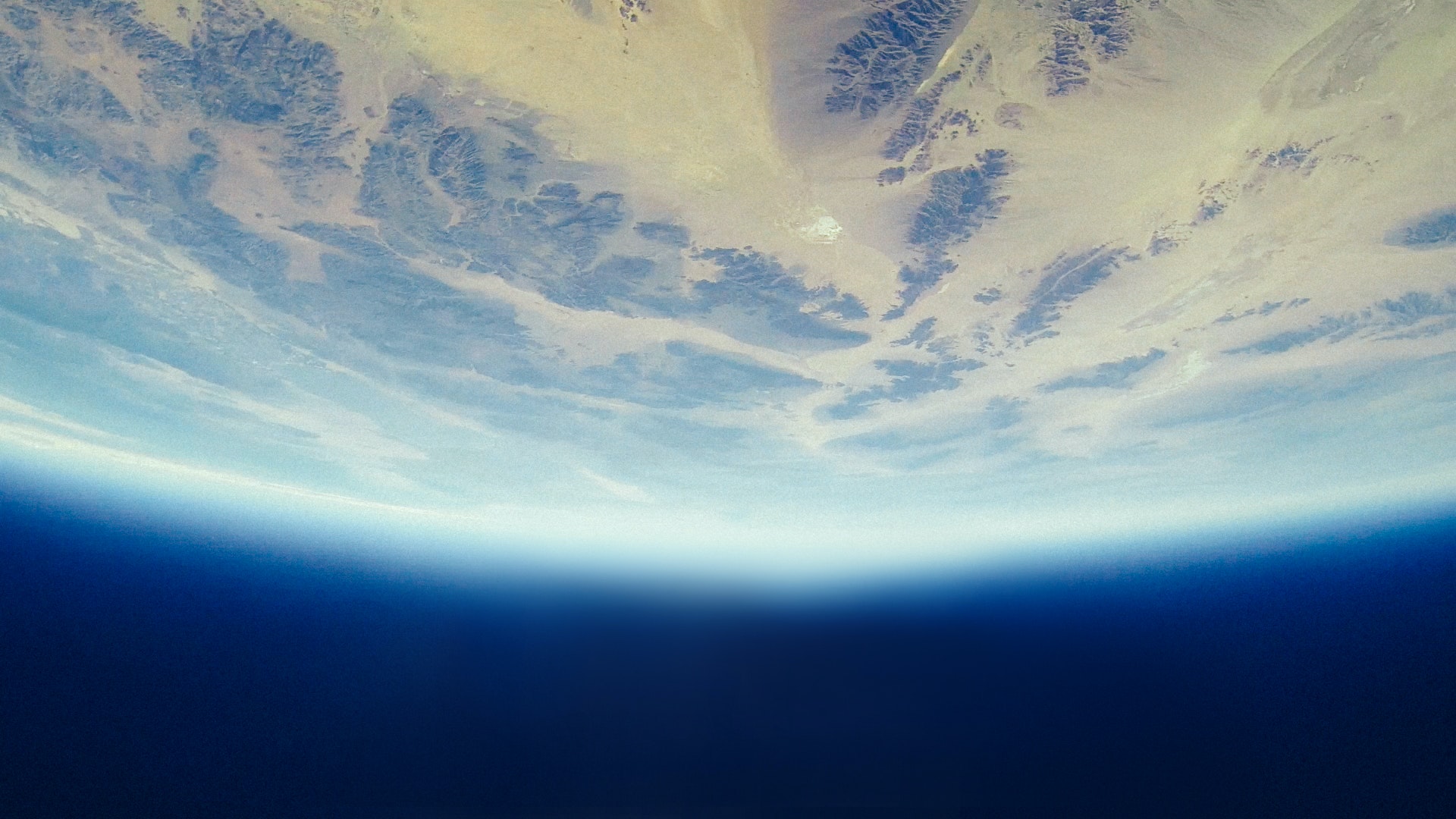
Presentation
Experts in various disciplinary fields; from geosciences and astrophysics to space sciences; are gathered in the Graduate School of Earth Planets Universe to share methods and technologies, allowing them pursue common goals and research interests.
The Graduate School of Earth Planets Univers trains students to become leading engineers and scientists in the study of complex natural systems, using physics, chemistry, long-term observations and big data streams.
Our research training focuses on innovation and we aspire to offer students a growing share of “courses without borders”, in partnership with renowned international universities and laboratories. For instance, the Master programme SPACE was created in 2009 in partnership with the university of Science and Technology of Hanoi.
Website
www.univearths.fr
Contact
Contact form
Address
Institut de Physique du Globe de Paris
1, rue Jussieu
75238 Paris cedex 05
Phone
+33 (0)1 83 95 74 34
Masters
This programme is opened to students with a solid background in physics, chemistry, mathematics, computer science or geology and offers cutting edge training in geosciences, combining quantitative and observational analysis methods.
Two specialisation options are available:
The first year of these programmes covers statistical physics, high energy physics, atomic physics, condensed matter physics, astrophysics. The second year (M2) programmes will allow you to specialise in different fields such as astroparticle, astrophysics, cosmology, particle physics and theoretical physics.
List of Masters taught in French and English:
- Fundamental physics and applications:
- Physics Master of the Centre International de physique fondamentale
- Risks and the environment:
Research
Laboratories
Earth, planetary and environmental sciences are gaining considerable momentum in modern society. Today, more than ever, we need to understand and predict the evolution of our planet. Chemistry, physics, geology and mathematics are used to analyze and understand changes in the solar system. They allow us to address challenges in various fields, such as understanding telluric risks, prospecting and managing natural resources, the impact of human activities on biogeochemical cycles, etc.
These questions are studied at the Institut de Physique du Globe de Paris (IPGP, UMR 7154), in charge of the observation services in volcanology, seismology, magnetism, gravimetry and erosion. Involved in the study of the planets in the solar system, the Institute offers powerful means of calculation, massive data processing capacity, and an analytical platform unique in France, along with the cutting edge experimental facilities.
The AstroParticle and Cosmology Laboratory (APC, UMR 7164)is interested in research in the Science of the Universe, in particular cosmology, gravitation, high-energy astrophysics and particle physics. In collaboration with the French space agency (CNES), the APC laboratory plays an important role in the deployment of deep learning techniques, in the analysis of data – on the ground and in space – but also in the design, construction and validation of space tools.
The Astrophysics, Instrumentation and Modeling Laboratory (AIM, UMR 7158) is one of the largest space laboratories in the world. In direct collaboration with the CNES, AIM is heavily involved in the space missions of European Space Agency scientific program on Cosmic Vision.
Doctoral schools
The doctoral school Earth, Environmental Sciences and Physics of the Universe of Paris (STEP’UP, DS 560) covers a vast scientific scope, which ranges from the geosciences and planetology to astrophysics, astroparticle physics and cosmology. Over 50 PhD students graduate each year from the School. Applications to join the PhD programme can be submitted from December to June.
Executives
- Yvonne BECHERINI
Director of the Graduate School of Earth Planets Universe
Board members:
- Marc BENEDETTI
- Vincent BUSIGNY
- Marc CHAUSSIDON
- Matthias GONZALEZ
- Antoine KOUCHNER
- Aurélia OLIVIER-KAISER
À lire aussi
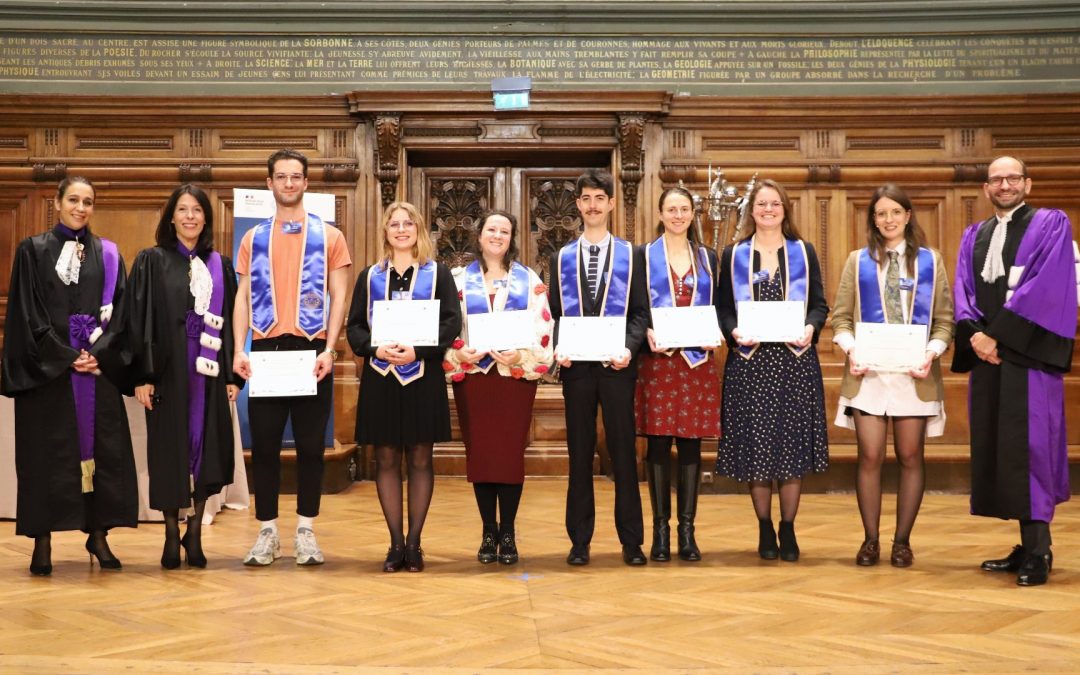
Félicitations aux 9 lauréates et lauréats des prix 2025 de la Chancellerie de Paris
C'est avec une immense fierté que nous saluons aujourd'hui les 9 lauréates et lauréats UPCité des Prix de la Chancellerie des Universités de Paris, figures emblématiques de la recherche scientifique et médicale. © Chancellerie des universités de Paris - Sylvain...
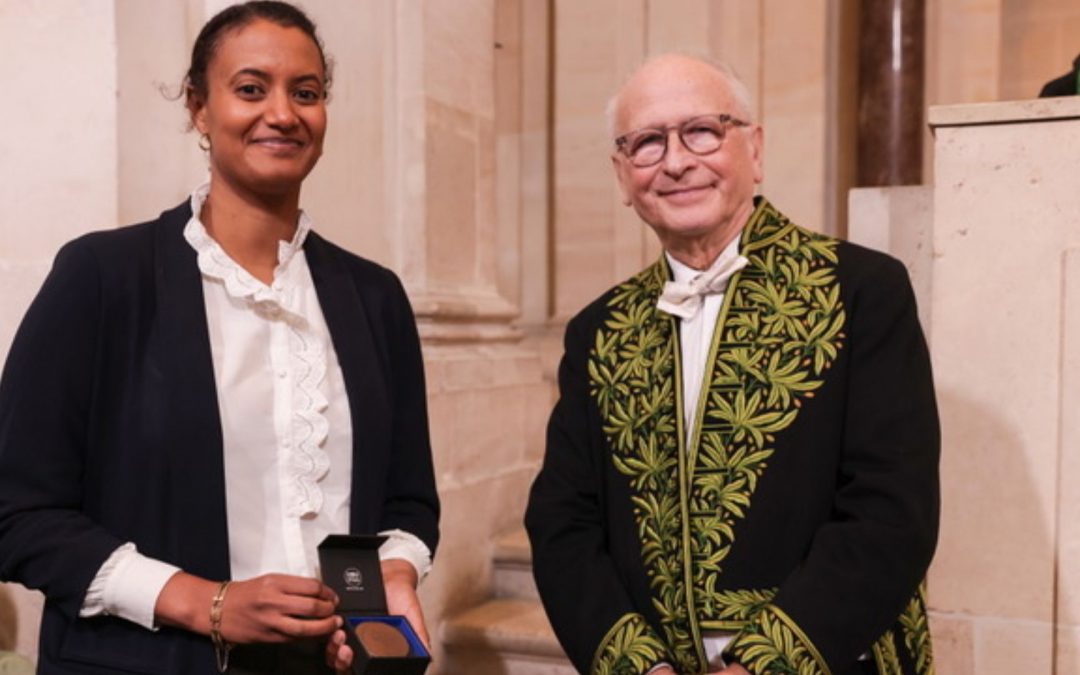
Kristel Chanard reçoit le prix Irène Joliot-Curie 2025, dans la catégorie “Jeune femme scientifique”
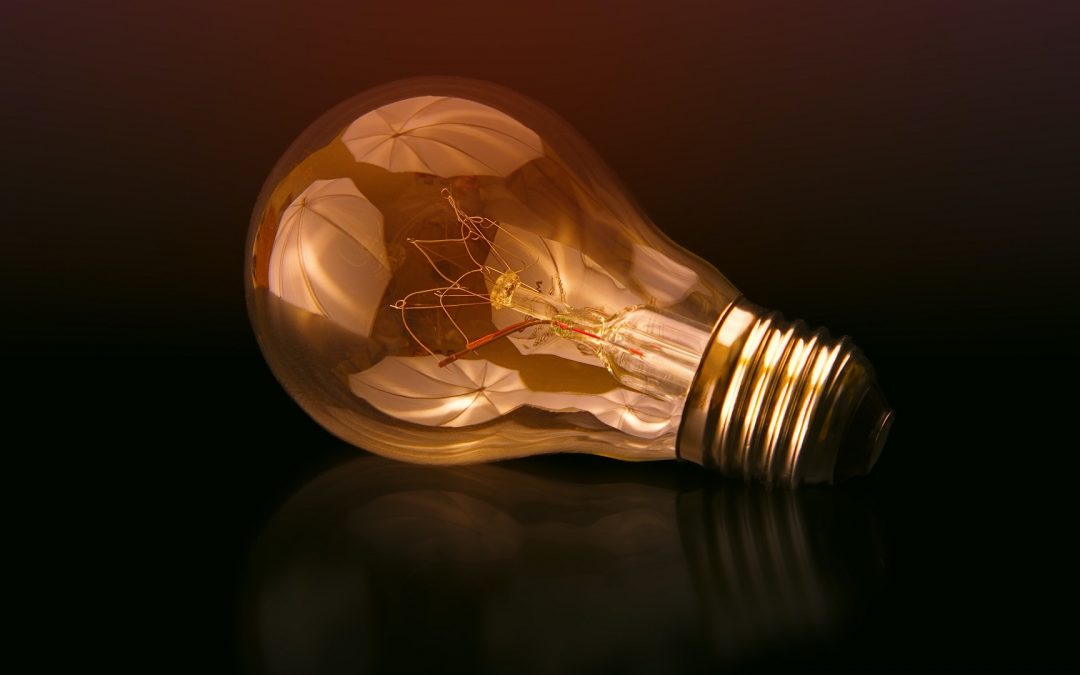
Unlock Tech Transfer: une série de vidéos pour comprendre le processus d’innovation et le transfert de technologie
Le transfert de technologie reste souvent méconnu ou entouré d'idées reçues qui peuvent freiner l'innovation issue de nos laboratoires. Inscrite dans le cadre du projet ValoCité, Pôle Universitaire d’innovation de l’Université Paris Cité bénéficiaire du plan...
![[Cardiovascular Sciences] “Open UE”: looking back on an interdisciplinary adventure!](https://u-paris.fr/wp-content/uploads/2025/12/Sans-titre-1920-x-1080-px58-1080x675.jpg)
[Cardiovascular Sciences] “Open UE”: looking back on an interdisciplinary adventure!
The “open UE”, launched by the Graduate School Cardiovascular Sciences, brought together researchers, clinicians, and experts from diverse fields for a week to explore major issues in biomedical and translational research. Open to all students across the 29 Graduate Schools of Université Paris Cité, it offered a unique space for learning and interdisciplinary exchange.
